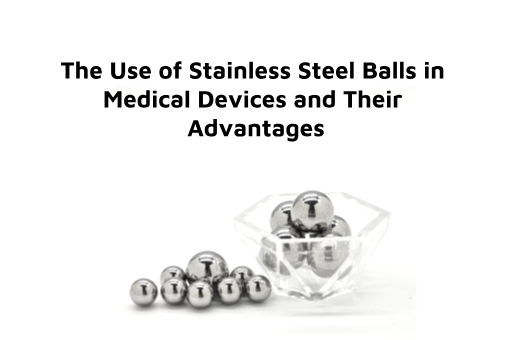
 Home > News
Home > NewsStainless steel balls are an essential component in the manufacturing of various medical devices. Known for their strength, durability, and resistance to corrosion, these balls play a crucial role in ensuring the reliability and effectiveness of medical equipment. This article explores the use of stainless steel balls in medical devices and highlights their key advantages.

Surgical Instruments
Stainless steel balls are used in the joints and pivot points of surgical instruments such as scissors, forceps, and clamps. Their smooth surface and precision ensure accurate and reliable movement during surgeries.
Diagnostic Equipment
Medical devices like MRI machines, CT scanners, and X-ray equipment rely on the precision and durability of stainless steel balls in their moving parts to maintain accuracy and longevity.
Implants
Stainless steel balls are used in various implants, including hip and knee replacements. Their biocompatibility and resistance to wear make them ideal for long-term implantation in the human body.
Drug Delivery Systems
Stainless steel balls are utilized in drug delivery devices, including pumps and syringes, where they help ensure consistent and controlled release of medications.
Corrosion Resistance
Stainless steel is highly resistant to corrosion, making it ideal for use in medical devices that are frequently exposed to bodily fluids and sterilization processes. This resistance ensures longevity and reliability, reducing the risk of device failure.
Biocompatibility
Medical-grade stainless steel, such as 316L, is biocompatible, meaning it does not cause adverse reactions when in contact with human tissue. This property is crucial for implants and other devices that remain inside the body for extended periods.
Strength and Durability
Stainless steel balls possess high tensile strength and can withstand significant stress and pressure. This durability is essential for the functionality and safety of medical devices, ensuring they perform consistently under various conditions.
Precision and Smoothness
The manufacturing process of stainless steel balls ensures a high degree of precision and a smooth surface finish. These characteristics are vital for the accurate and reliable operation of medical devices, minimizing friction and wear.
Easy Sterilization
Stainless steel can be easily sterilized using various methods, including autoclaving, chemical sterilization, and radiation. This versatility ensures that medical devices maintain their sterility and safety standards, crucial for patient care.
Cost-Effectiveness
Despite their high quality, stainless steel balls are cost-effective compared to other materials with similar properties. This affordability allows for the production of reliable and durable medical devices without excessive costs.
Stainless steel balls are indispensable in the medical device industry due to their exceptional properties. Their corrosion resistance, biocompatibility, strength, precision, and ease of sterilization make them the material of choice for a wide range of applications. As technology advances and the demand for reliable medical devices continues to grow, the use of stainless steel balls will undoubtedly remain a cornerstone in the development of innovative and effective healthcare solutions.
View More(Total0)Comment Lists